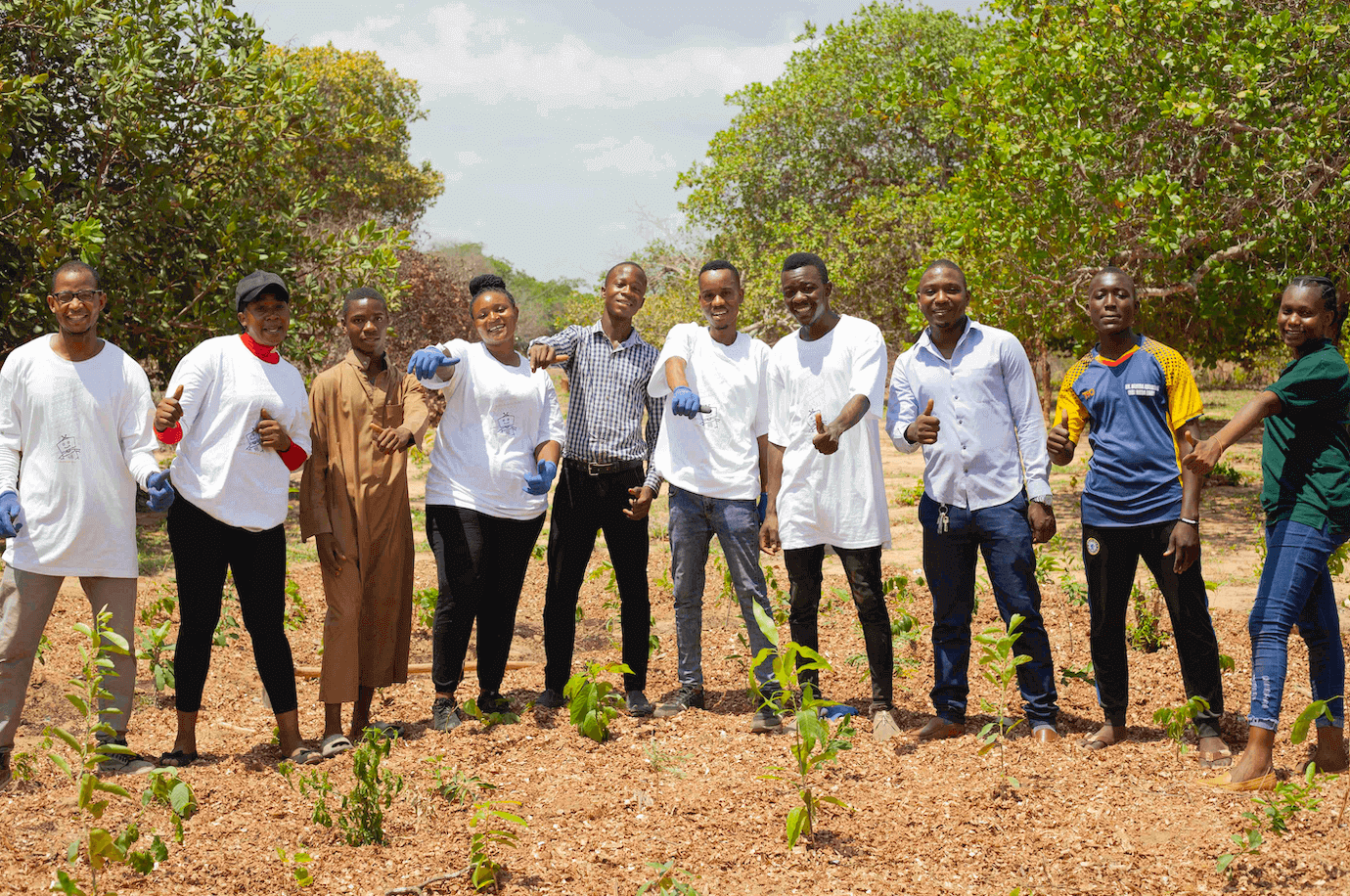“I believe [a] microforest is a motivation to everyone at school to be inspired and reminded about the beauty and need to preserve nature”
Christopher Tebba, Ugandan Teacher
As we reflect on the past year since the launch of the Play, Pluralism, and the Planet initiative by the Aga Khan Foundation (AKF) at COP27, remarkable strides have been made in the realm of climate education. The initiative, embedded within the Schools2030 framework, aims to catalyze innovative, teacher-driven solutions to mitigate the effects of climate change and build the climate literacy and resilience of the next generation. Now, a year later, we are thrilled to report significant progress, particularly in the implementation and growth of microforests across East Africa.
Microforests Take Root: The First Climate Resilient Innovation
As of November 2023, microforests have taken root in over 130 schools across East Africa reaching an estimated 500 teachers and 15,000 students. These miniature ecosystems not only contribute to the global fight against climate change but have also become powerful tools for teaching and learning. The three-pronged approach of embedding climate literacy, climate compassion, and climate resilient education into schools through the Play, Pluralism, and the Planet initiative is now manifesting through the flourishing microforests, offering a tangible and immersive teaching opportunities for teachers and learning experiences for students.
“(The microforest) gives me potential to become one of the people who will fight against deforestation”
Abdul Kaddeyo, Student in Kampala
Direct Climate Programming: Empowering Teachers and Students
A quarter of participating schools are in the Schools2030 program and are actively engaged in climate programming with AKF, fostering a deeper understanding of environmental issues among both teachers and students. Teachers have emerged as champions of both innovation and climate ownership, guiding students through hands-on experiences and imparting crucial knowledge about climate change mitigation.
“I’ve seen a positive engagement from students because we address the problems in our community. We see the impacts of climate change and we do something about it. I have seen my learners become more responsible as they’re in charge of the project.”
Esther Gacigi, Teacher, Kenya
Indirect Support: A Ripple Effect of Positive Change
Participating organizations, such as schools and private and not for profit organizations, not directly engaged in AKF programming, are also benefiting from microforests and will continue to gain access to new material and tool development, such as online training and monitoring resources. This will enable these schools to similarly leverage the microforests as teaching and learning aids, while measuring their impact and management.
“I have learnt that you can start as a small community then influence others. Students will also learn that planting trees and caring or maintain the forest cover can reduce toxins in the air.”
Rose N Sanyu, Parent of Student in Kampala


High degree of engagement from both teachers and students has been extremely encouraging. The microforests have not only become symbols of environmental consciousness but have also sparked additional innovations within schools. Students, inspired by their involvement in microforestry, have started to think about solutions related to water, energy, and pollution, and have initiated their own projects, ranging from community clean-up campaigns to innovative recycling programs, to efficient micro-irrigation systems.
“Students were attracted and became interested to have their microforest at their home. They see (the) microforest as something that could change their life. Also, it stimulated learning activities because some plant species were not known before.“
Adili Mbwambo Herieli, Tanzanian Teacher
Looking Ahead: A Greener Future
The success of the past year has laid the foundation for increased climate education impact and investment. Over the next three years, the Aga Khan Foundation plans to expand this innovative climate education programming within East Africa and to Mozambique, Madagascar, and to Central and South Asia. This growth will provide invaluable insights into the impact of greening school spaces, using forests as teaching tools, and understanding how student engagement with nature influences learning outcomes.
Further Research: Understanding Potential Community Benefits of Microforests
AKF is also delving into the community-based impacts of microforests, exploring the benefits of locally produced fruit, medicinal plants, and fodder. This holistic approach aims to not only nurture environmentally conscious individuals but also contribute to the overall well-being of school communities.
Next Steps: Scaling Climate Innovation and Contributing to a Transformative Climate Agenda
The recent COP28 and RewirED Summit represents a significant opportunity for organizations to bring innovations in the climate space, and for AKF that means building connections within its existing program portfolios of education, civil society, and climate resilience. Valuable evidence is being generated through this initiative that will inform individuals, organizations, and governments on how education can be integrated into a transformative climate agenda.
As we celebrate the achievements of the past year, we look forward to supporting the continued growth of microforests and climate education and the potential they hold to facilitate the shaping of a greener, more sustainable future for all in the areas where we work. The journey has just begun, and with each sapling planted, we take a step closer to a world where education and environmental stewardship go hand in hand.
Are you a teacher? Find out how you can create a microforest with your students here.
